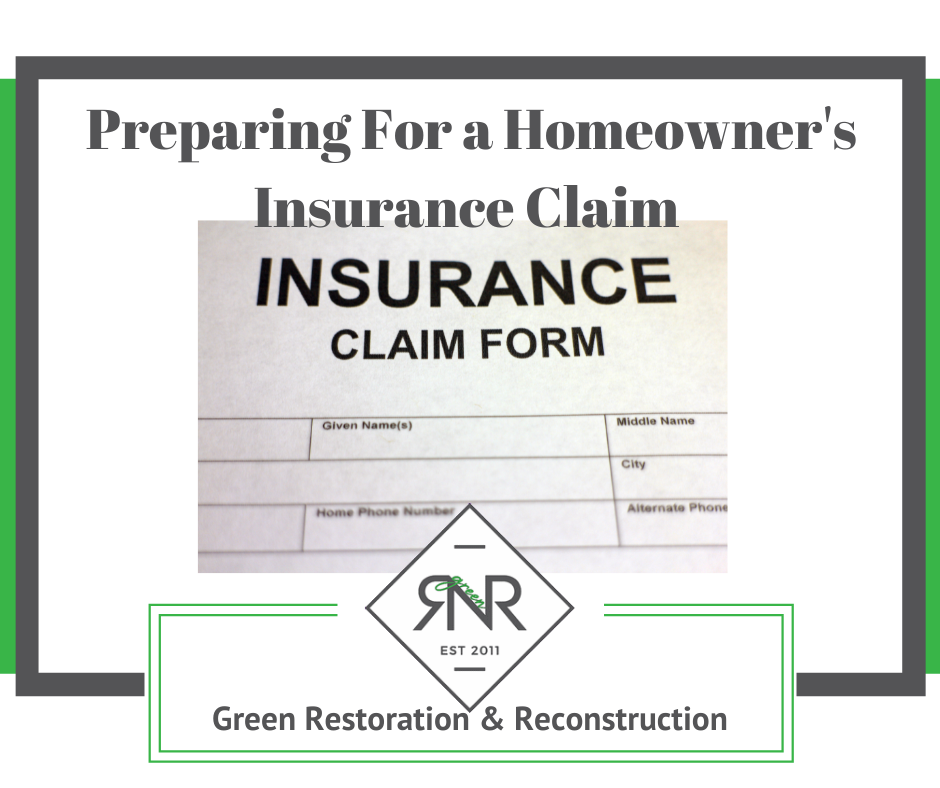It's important when suffering a loss, to maximize your ability to recoup that loss through a homeowner's insurance claim.
- Make note of damage or loss immediately - Before filing the claim, take pictures of what happened before any repairs are attempted or losses are fixed up. That way there aren't any arguments later about whether or not something was damaged in a certain way.
- Contact your insurance company right away - Don't wait until regular business hours to call your insurance company, because all lines are open 24/7. Don't just file a claim online, either - that way it's more likely for something to get lost in the digital shuffle and the claims department will have to follow up with you anyway.
- Map out your insurance policy - Know what kind of coverage you have and which items are covered. You'll also need to know the replacement value or cash value amount so that you can adequately file a claim.
- Don't be a stranger - Inform your neighbors, friends, and family members about the damage/loss in case they want to help. If they saw something happen, this way they're able to add their information on the claim form as witnesses to back up what happened.
- Document all transactions with your insurance company - Keep track of when you called, who you talked with, and anything that was agreed upon by both parties while dealing with an insurance claim. If there is any disagreement later it will make things easier if you have a record of what was said.
- Get repair estimates - It's important to get more than one estimate from your insurance company before making any repairs or buying new items. You can also get multiple estimates from non-insurance sources, but make sure the insurance representative knows about all outside estimates.
- Don't pay too much attention to a deductible amount - The deductible doesn't mean that the insurance company isn't going to cover at least some of the loss - it just means that they're not going to cover some certain percentage of some certain loss right away. For example, if there's a $2,000 deductible and your claim for damage is $10,000, then the insurer will only pay their share of the deductible. The remaining amount will need to be paid by you.
- Don't make a deal until all parties agree - An insurance company may offer their maximum because they know that in some cases, once enough time has passed without a claim being filed, they'll eventually have to pay more money out in the long run because the cost of repairs or replacements is higher than what was initially expected.
- Keep your receipts - You might get reimbursed for some expenses - so keep every single receipt and document related to what you've lost or damaged. It's also important to save copies of all paperwork, correspondence, and correspondences related to an insurance claim.
- Be patient - It may take longer than expected to get back to you, but if it's been a while and you haven't heard anything back from the insurance company it's important not to assume that they're going to be difficult when filing your claim.
- Be polite when talking with claims adjusters. - Remember that there are real people on the other end of the phone or email messages who have nothing at all to do with why or how an accident happened - their job is simply a matter of processing paperwork. If something isn't going right in your mind, politely ask for someone else instead of getting frustrated and resorting to verbal abuse.
- Don't make assumptions - Every company has different rules about everything - especially policies related to payment. It's best just to ask instead of assuming that something will be covered. Just because you heard about someone else filing a claim about something similar it doesn't mean that your insurance company is going to say yes, too.
- Don't sign anything - Don't sign any documents until you've read them and understand what they say - otherwise, you might end up forfeiting a lot of your rights if the language is written in a certain way. If a representative from your insurance company says some wording is non-negotiable, tell them that you'll get back to them later with an answer after calling their supervisor or another department within the same company.
- Hire the right company for repairs - Hire a company that has extensive experience working with insurance claim repairs. Some contractors have little to no experience with the procedures and policies of insurance companies and despite being fantastic at what they do, may accidentally cause you delays, or cost you some of your deserved insurance money.
For residents of the greater New Jersey area, Green Restoration & Reconstruction is an obvious choice for your disaster repairs. In addition to our relationships with top-notch remediation crews who expertly mitigate water, mold, and fire damage, our crew specializes in making family homes whole again after suffering water, fire, or storm-related loss. We are thoroughly accustomed to working with insurance companies to get you the most for your insurance claim funds while maintaining the highest level of communication with both the homeowner and the insurance companies to ensure a smooth process from beginning to end.


